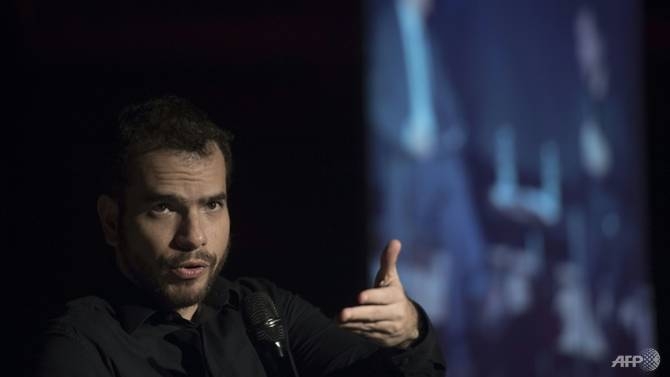Brazil hosts top math prize for first time in Latin America
 |
| Franco-Brazilian mathematician Artur Avila won the last Fields Medal in 2014. (Photo: AFP/Mauro Pimentel) |
It is the first time that a Latin American country has hosted the International Congress of Mathematicians, which has taken place every four years since the late 19th century and will run to Aug 9.
Organiser Marcelo Viana, who heads Brazil's National Institute for Pure and Applied Mathematics, or Impa, said the event is a landmark for the region's biggest country.
"When the first congress was held in 1897 there were practically no mathematicians in Brazil. The fact we've been entrusted to organise this gives you an indication of how far we've come," he told AFP.
The institute is based in Rio de Janeiro, where the building, featuring large areas of glass and clean modern lines, blends into the lush growth of the Tijuca rainforest - a surprisingly wild setting for the austere precision of the activity inside.
One of Impa's researchers, the Franco-Brazilian mathematician Artur Avila, won the last Fields Medal in 2014, along with three others, including the first female laureate, Harvard-educated Iranian Maryam Mirzakhani. She died in 2017, aged 40.
The Fields Medal recognizes outstanding mathematical achievement of candidates who were under 40 years old at the start of the year.
At least two and preferably four people are always honored and the announcement is expected at the start of the congress on Wednesday.
MATHS FOR THE MASSES
For Brazil, just hosting the congress is a win that builds on its ascent in January to the International Mathematical Union's elite Group 5, a club for leading mathematics research nations.
Viana hopes the event will help "promote math among the young."
"In 2006, the (congress) was held in Madrid and all my Spanish colleagues said that the culture of mathematics really took off across the country."
So the Impa will throw its venerable doors open with activities meant to lure in non-specialists and broaden the discussion far beyond mere numbers.
"Normally we're asked to organise conferences in the most accessible language as possible so that all mathematicians can understand. We're going much further so that children can also understand," the Impa director said.
Another Brazilian research body, the Serrapilheira Institute, has sponsored 19 black mathematicians and two members of indigenous tribes to attend. They will join a round table on gender inequality in the field.
But Viana said that the excitement of the congress cannot mask the no less stark inequalities in Brazil's school-level math.
"Our system is far too imbalanced, with huge differences between public and private education. Public school teachers are not well enough trained or paid," Viana said.
In the international PISA education rankings, which are issued every three years, Brazil was in 65th position for mathematics in 2015.
Research has taken a strong hit due to budget cuts in the wake of a deep recession in 2015 and 2016, contributing to a brain drain.
"In other countries, like China, they respond to moments of crisis by raising the research budgets to develop new growth points for the economy," Viana said. "Here the government opted for austerity and it doesn't make sense."
What the stars mean:
★ Poor ★ ★ Promising ★★★ Good ★★★★ Very good ★★★★★ Exceptional
 Tag:
Tag:
Related Contents
Latest News
More News
- Russian President congratulates Vietnamese Party leader during phone talks (January 25, 2026 | 09:58)
- Worldwide congratulations underscore confidence in Vietnam’s 14th Party Congress (January 23, 2026 | 09:02)
- Political parties, organisations, int’l friends send congratulations to 14th National Party Congress (January 22, 2026 | 09:33)
- 14th National Party Congress: Japanese media highlight Vietnam’s growth targets (January 21, 2026 | 09:46)
- 14th National Party Congress: Driving force for Vietnam to continue renewal, innovation, breakthroughs (January 21, 2026 | 09:42)
- Vietnam remains spiritual support for progressive forces: Colombian party leader (January 21, 2026 | 08:00)
- Int'l media provides large coverage of 14th National Party Congress's first working day (January 20, 2026 | 09:09)
- Vietnamese firms win top honours at ASEAN Digital Awards (January 16, 2026 | 16:45)
- ASEAN Digital Ministers' Meeting opens in Hanoi (January 15, 2026 | 15:33)
- ASEAN economies move up the global chip value chain (December 09, 2025 | 13:32)






















 Mobile Version
Mobile Version